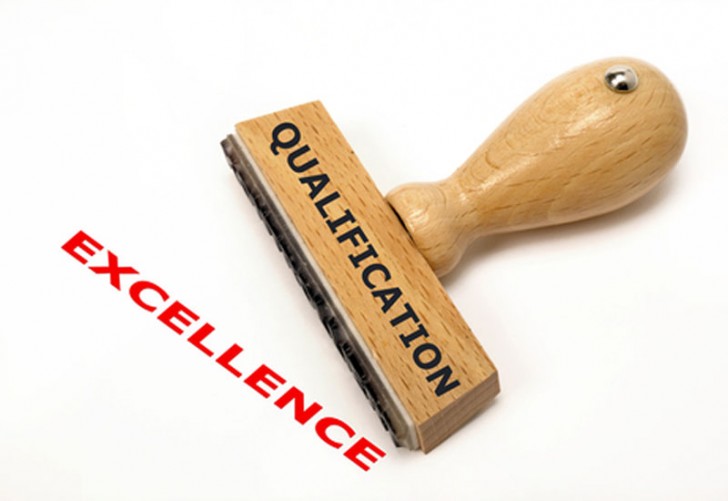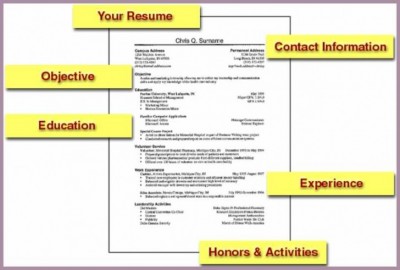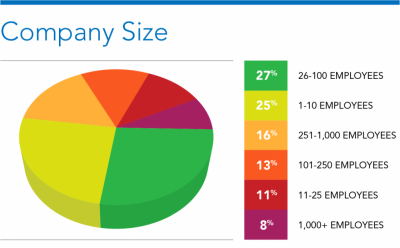Are You Confident That You’re Qualified To Apply For Your Dream Job?
You spent the better part of your life gaining knowledge and acquiring skills through education, training, and perhaps work experience after attending school. By this time, you already have an idea where your interests lie and where you’d want to go career-wise. You browse the Internet (and maybe scan the newspaper if you’re old-school) looking for the job you’ve always wanted.
 Will I land my dream job?
Advertisements
Will I land my dream job?
Advertisements
Of utmost concern is whether or not you will get the job. To determine this, it is necessary to do an honest-to-goodness self-assessment to gauge your chances of landing that target job. Recruitment experts suggest that whenever doubts creep in, the best thing to do is to”carry on with your plan to apply.”
However, you need to find out how ready you are in presenting your credentials to the target company. It is paramount to have a reasonable answer to each of these questions to know if you have a good chance of making it to the shortlist.
 How qualified am I?
How qualified am I?

Recruiters advise that you have to meet at least half of the qualifications specified in the job opening. Though this is rather a rough way of estimating your credentials, it should give you an idea of your overall capabilities vis-à-vis your dream job.
Call it having a “bird’s eye view” of your package and evaluating it against what’s being asked of the position. You can confidently submit your resume if you pass this initial assessment. Afterward, proceed to the next items on your considered checklist.
 Basic requirements
Basic requirements

Jobs usually have a set of minimum requirements that you need to meet. This measure alone will already tell you how you fare as a potential job candidate.
Required educational background, including the highest level of education attained, is usually spelled out, and this clearly sets a certain limit of applicants. If you see that you lack in this requirement, then you have to be willing to get that degree or a course if you really aspire to meet that specification. If the job calls for a specific number of years of work experience, then see whether or not your equivalent work history would suit the demands of the job.
 Work history
Work history
Your job experience is “the most significant part of your credentials” (next to training and education). Therefore, your record should be as clean as possible. Recruiters look into how often you’ve changed jobs, and conversely, if you have held onto a certain job for quite a long while. If there is a reasonable explanation that you could give without sounding insincere, then you have nothing to worry about. Here are two tips:
- Make your potential employer understand that the reason for changing jobs was to purposely increase and widen your experience to gain more knowledge and skills. In this way, you redirect the attention from your work jumps. Of course, this technique will work if you have not been shifting to the same job in the same position over and over again.
- If you have been in a company and the same position for quite a while, you can perhaps justify your love for your work, its nature, and the routine. Add some more information such as your belief in job stability and loyalty to the company.
 Does my resume paint a realistic picture?
Does my resume paint a realistic picture?
 Your resume is your ticket to being noticed and eventually being hired. It should cover in a nutshell “who you are, what you have done, and what you can do”. It’s your only major marketing tool to sell yourself. As such, you have to spend a considerable amount of time writing the document.
Your resume is your ticket to being noticed and eventually being hired. It should cover in a nutshell “who you are, what you have done, and what you can do”. It’s your only major marketing tool to sell yourself. As such, you have to spend a considerable amount of time writing the document.
But whatever you do, don’t lie in your resume. It is easy to validate the information you’ve written. Always customize your resume and throw in a well thought out cover letter to express your intention to apply. Also, briefly explain why the potential employer should give you his time of day. All in all, your resume and application letter should resonate with confidence, enthusiasm, and sincerity.
 What is the size of the company?
What is the size of the company?
 Consider how big or small the organization is. On the one hand, small companies normally go easy on their applicants and provide a greater chance of allowing you to “stand out from among the pile”.
Consider how big or small the organization is. On the one hand, small companies normally go easy on their applicants and provide a greater chance of allowing you to “stand out from among the pile”.
On the other hand, large enterprises tend to have more rigorous methods and structure in the way they source and screen applicants. However, these big players should not be ignored altogether, particularly those that are already well-established and highly-structured. These can be more equipped to provide you with your ideal career opportunity. Overall, it takes a shorter period to penetrate smaller companies than it is to be considered for employment in bigger companies.

 Do I have a supporter?
Advertisements
Do I have a supporter?
Advertisements
Though this is rather optional, things would likely work to your advantage if you have someone in the company “who knows you” and can put in a good word on your behalf. If you’re not sure that you know anyone from the company, try to visit sites such as LinkedIn.
While there, check your contacts to establish possible connections. You can also opt to ask for a letter of recommendation from someone directly or indirectly connected to the company. It will surely make a difference in making you more credible.
Your dream job may just be around the corner only if you’re “patient enough” to seek it out. The key is preparation and readiness, plus the right mindset to claim it as yours.




